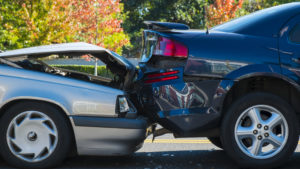Warranties carry with them the promise of effortless solutions—an assurance that someone has your back if there is a problem. They do bear a lot of confusion, though. Some warranties are comprehensive while others only cover specific parts or problems. Others are easily voided, with strict requirements that, depending on the attention paid while reading it, an average owner might not even be aware of.
What Does the Manufacturer’s Warranty Typically Cover?
The most common types of warranties for vehicles are powertrain and bumper-to-bumper although some warranties will include both.
The powertrain of a vehicle includes the car parts which provide power or movement to the frame: engine, transmission, and drivetrain. Bumper-to-bumper covers almost everything else—even tires, if they have problems before they eventually wear out.
Unfortunately, each warranty is unique to the vehicle’s manufacturer. Typically, powertrain warranties have a longer duration than bumper-to-bumper warranties with some car makers, such as Dodge, Jeep, and Chrysler offering limited lifetime warranties on powertrains. Most, though, fall between 60,000-100,000 miles for powertrain (or 4-6 years) and 3-5 years (or 30,000-50,000 miles) for bumper-to-bumper.
There is a lot of variation for specific warranties, so consult your individual vehicle for more information.
What Would Void a Warranty?
Generally speaking, average, everyday vehicle use will not void your car’s warranty. Some examples of what will typically void your warranty could include:
- Extreme use such as racing or off-roading
- “Acts of God” such as damage caused by floods or earthquakes
- Neglecting routine care such as oil changes or scheduled maintenance
- Modifying the vehicle, especially the odometer
This last one, in particular, can cover a surprising amount of ground. While altering the odometer in any way is a sure-fire way to void the warranty, you can also run afoul of car dealerships for a wide range of aftermarket parts.
However, car owners should be aware of the Magnuson-Moss Warranty Act of 1975 which, according to Edmunds.com, mandates that coverage cannot be denied unless the dealership can specifically prove that the aftermarket part in question caused the damage.
Of course, aftermarket parts being present on your vehicle in general may suggest to the dealership that you have raced or off-roaded your vehicle, which would potentially give them another angle to deny your coverage.
Does a Car Accident Void the Warranty?
In short: no.
The only accident-related way to void a vehicle’s warranty is if it is given a salvage title, which notes a vehicle branded damaged or declared a total loss by an insurance company that paid a claim towards it.
As above, some car dealerships will try to argue that an aftermarket part caused the accident, which would result in a voided warranty. This is particularly dangerous with things like tires and suspensions or lift kits.
Buyer beware.
Overall, if you are using your vehicle in an average manner, taking care of it through routine problems and using proper maintenance techniques, your warranty should not be voided. Hopefully you never have to use this information, but if you do, at least you won’t be alone in your struggles by following these recommendations: the manufacturer should be there to help.





